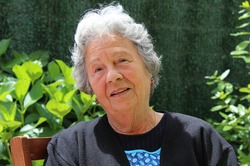The National Council on Aging has  published its “Top Ten Financial Scams Targeting Seniors” list. https://www.ncoa.org/economic-security/money-management/scams-security/top-10-scams-targeting-seniors/. These scams are crimes, and they are on the rise. When they happen, they are devastating to not only the senior victims, but also to those who care for them or must shoulder the financial burden when the scam has left the senior less able to.
published its “Top Ten Financial Scams Targeting Seniors” list. https://www.ncoa.org/economic-security/money-management/scams-security/top-10-scams-targeting-seniors/. These scams are crimes, and they are on the rise. When they happen, they are devastating to not only the senior victims, but also to those who care for them or must shoulder the financial burden when the scam has left the senior less able to.
If you are caring for a loved one in his/her senior years, please send them this link, and talk to them about these despicable, but popular scams:
(1) Medicare/health insurance scams: The perpetrator poses as a health care representative; the whole purpose is to get the senior’s personal information, which can then be used to submit false bills to Medicare and other insurers.
 Illinois Personal Injury Lawyer Blog
Illinois Personal Injury Lawyer Blog


